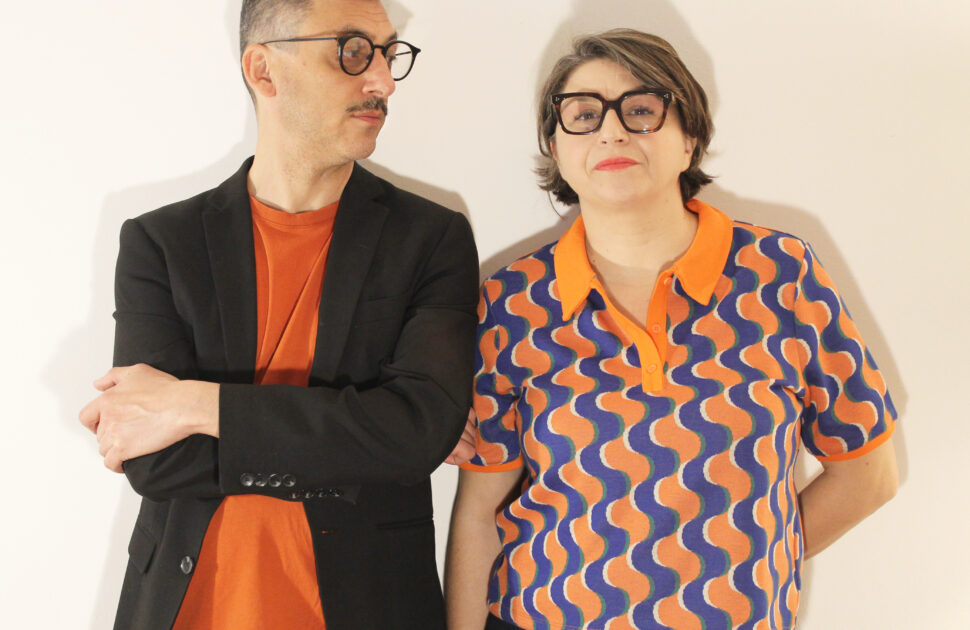
JOHN CASCONE / VERONICA CRUCIANI
John Cascone
John Cascone, was born in Cheltenham (UK) in 1976. A visual and sound artist, in recent years he has dedicated himself to experiments in the exploration/re-writing of the real with local, online, peripheral, condominium, domestic, radio, cinephile and self-styled sects, developing practices of out-of-time and out-of-place; attempts at language evasion; dramaturgical self-sabotage; studies on architectural illiteracy; urban interventions as abusive narratives; and methodological anarchism applied to imaginaries. He aims to rediscover and expand the infinite possibilities of meaning present in the real. Lives and works in Rome.
Veronica Cruciani
Veronica Cruciani, director, actress, visual artist and counselor, graduated from the Civica Scuola di Teatro Paolo Grassi in Milan in 1998. She builds cultural policies and initiatives aimed at citizenship. She believes in a popular art theater. She alternates texts of contemporary Italian and foreign dramaturgy, often performed for the first time in Italy, with the study of revisited classics. He collaborates with major Italian theaters. He has won numerous theater critics’ awards with his plays. In 2003 she interpreted and directed the monologue “Le nozze di Antigone” written for her by Ascanio Celestini. Finalist at the Ubu Awards as best actress under 35. Reported text at the 2002 Premio Riccione per il Teatro and winner of the 2003 Oddone Cappellino prize at the Festival delle Colline Torinesi. In 2008 with “Il Ritorno” by Sergio Pierattini, of which she is director, producer and creator of the project, she wins the Critics’ Prize for the best Italian text 2007/2008 and arrives as a finalist at the Ubu Awards as best new Italian play 2008. In 2009 she wins the Cavalierato Giovanile award for best talent under 35 in the Lazio region. In 2011 he produces and directs Giorgio Scianna’s “La palestra.” In 2012 he wins the Hystrio-Anct Award of the National Association of Italian Critics for his artistic career with the motivation “for the gaze, ancient and modern at the same time, with which he has been able to splendidly read lights and shadows of the reality of our time.” In 2022 she won the Hystrio prize for directing with the motivation “For the quality with which she intends and practices theater on a daily basis, therefore, and for the political and intellectual coherence that distinguishes her, and for the cultural and creative independence she demonstrates every time.” From 2013 to 2019 she was artistic director of the Quarticciolo Library Theater of the City of Rome.
PROJECT TITLE FOR SEMINARSOGNINTERRA23
“The Unknown, Unknown, Elsewhere” The Mountain and the Vision.
How important is the past for imagining and building the future?
The world is never as it once was. The past is an interpretation of the present, the future a projection of that interpretation.
What are the elements you would like to work on further?
The unknown, the unfamiliar, the elsewhere. The relationship with things, with people, with places we do not know, the making of an experience, all that comes before knowledge. It is in this space that there is creation.
Tell me more about the work for Seminaria.
The work that we will make for Seminaria will be a video in which we would like to explore how the mountain and the woods in front of Maranola are perceived in the imagination of its abitan: and it will be born from the meetings that I will make with them in the days before the shooting.
A project that you have not been able to do, but would like to do?
The realization of one day of a Fes:val, sponsored by the Unthinkable Institute, in which all elements, tickets, meetings, presentations, workshops, publications, concerts, screenings, communication, etc., are one big work.
Your research establishes a deep dialogue with local communities. How important to you is the relationship between multiple individuals and their neighbors? How do the testimonies you collect become part of artistic processes?
In the encounter, in the dialogue, something unexpected happens, well expressed in the concept of “and” in E: Bifo’s conjunction: “Conjunction is the temporary and precarious attunement of vibratory organisms that exchange meaning. The exchange of meaning is based on sympathy, on the sharing of pathos. Conjunction therefore can be understood as becoming other. Singularities change when they conjoin, as love changes the lover…A conjunction is a creative act: it creates an infinite number of constellations that do not follow the lines of a pre-existing pattern.” In this free making world lies our work.
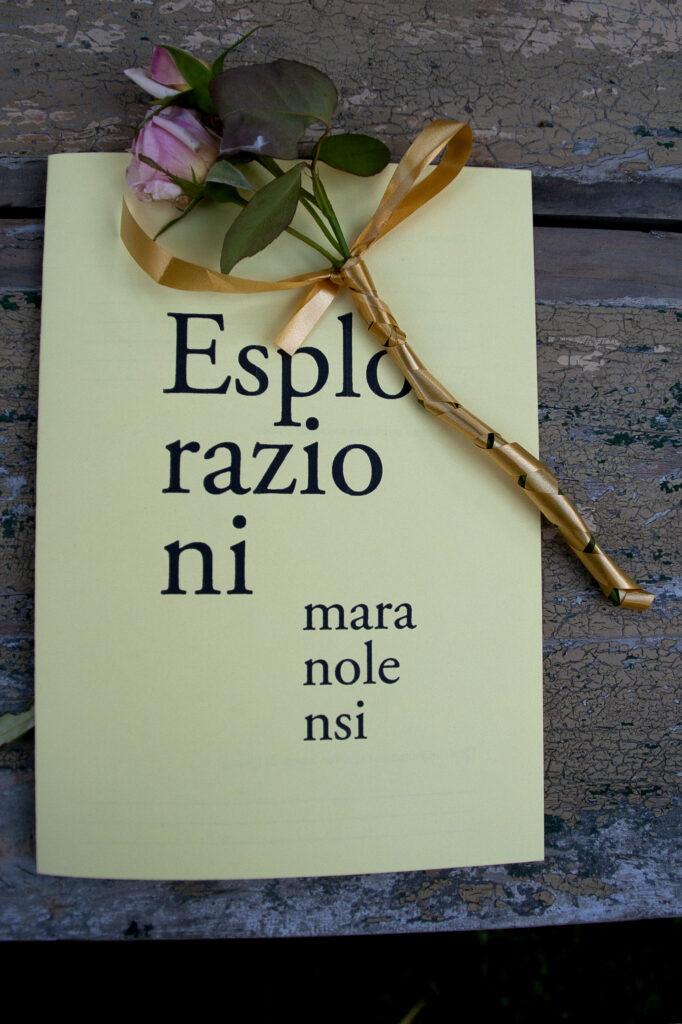
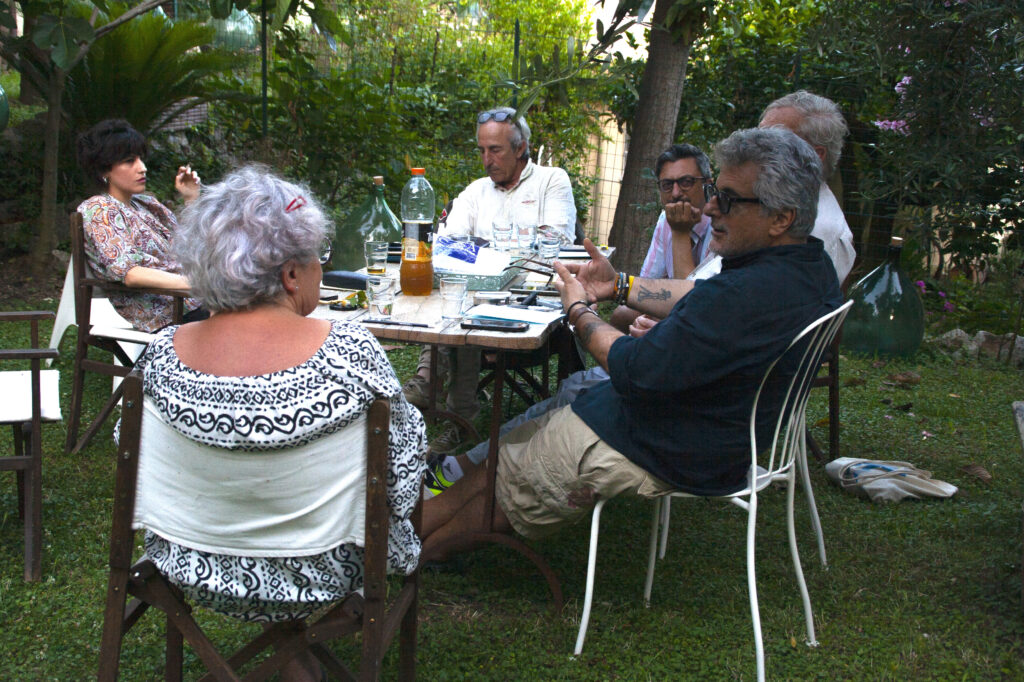
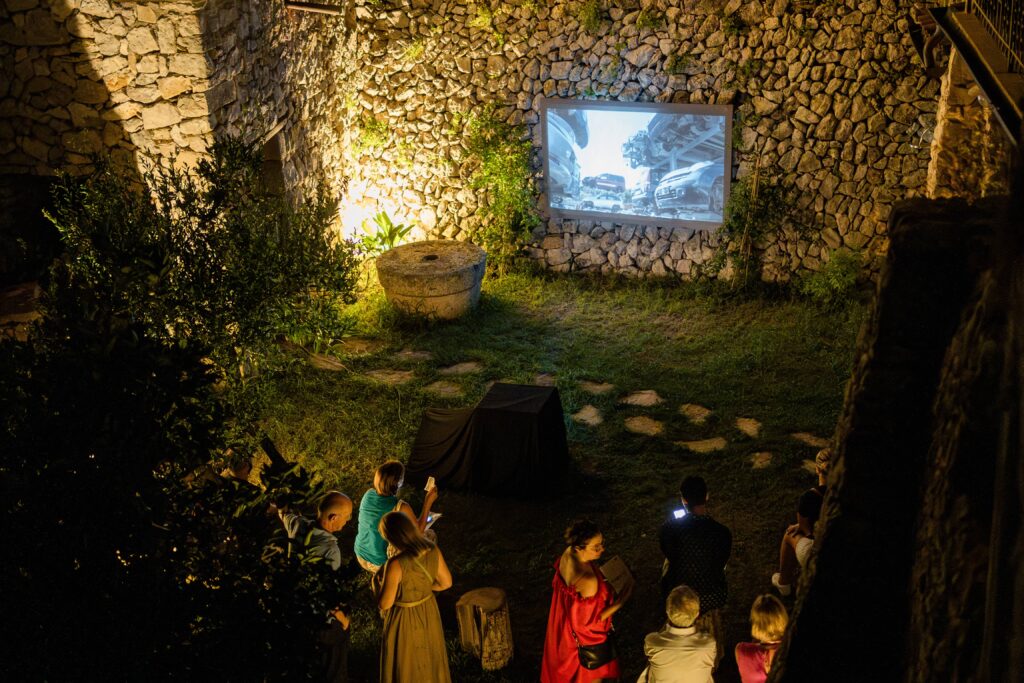
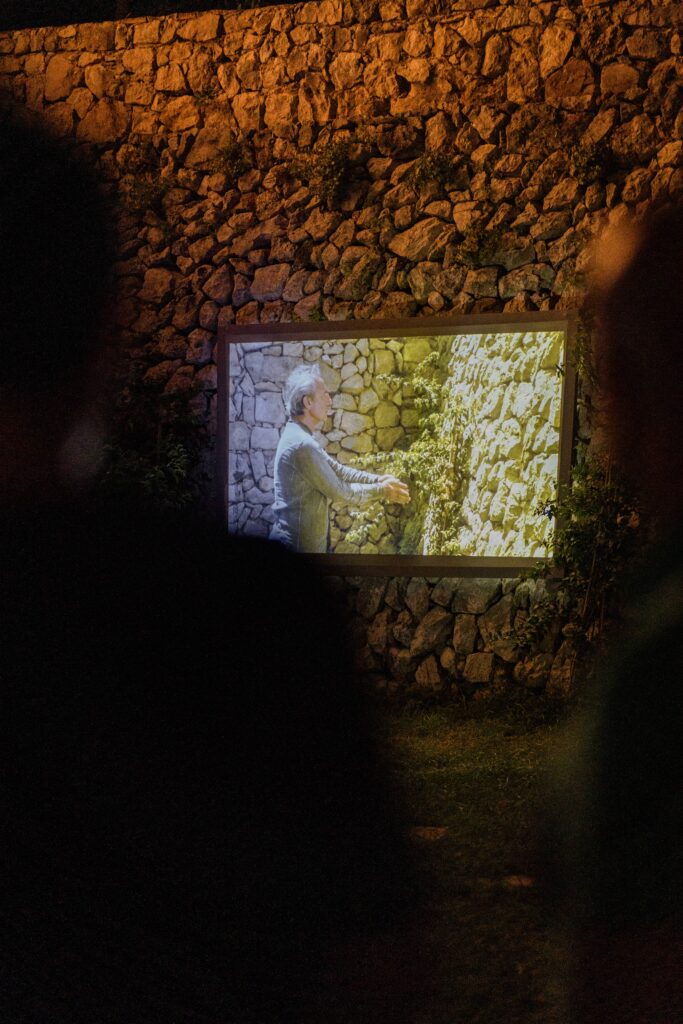
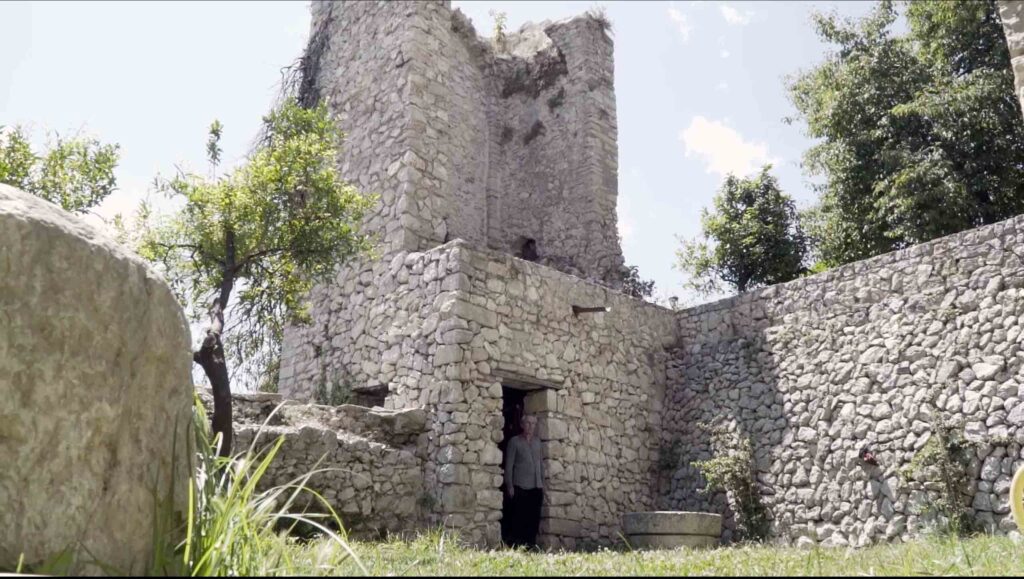
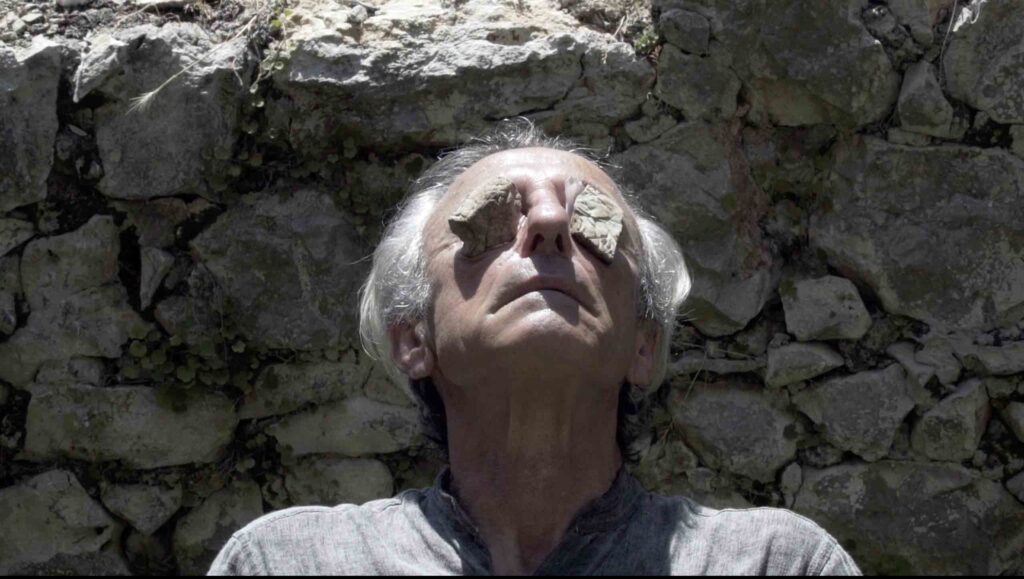
This post is also available in:
Italiano (Italian)
